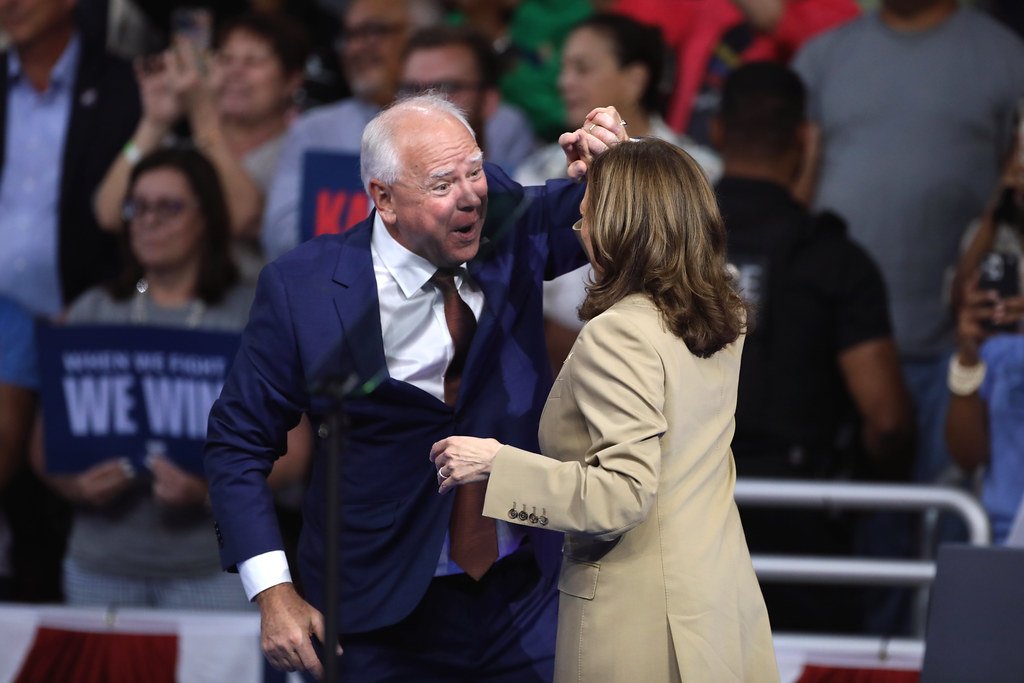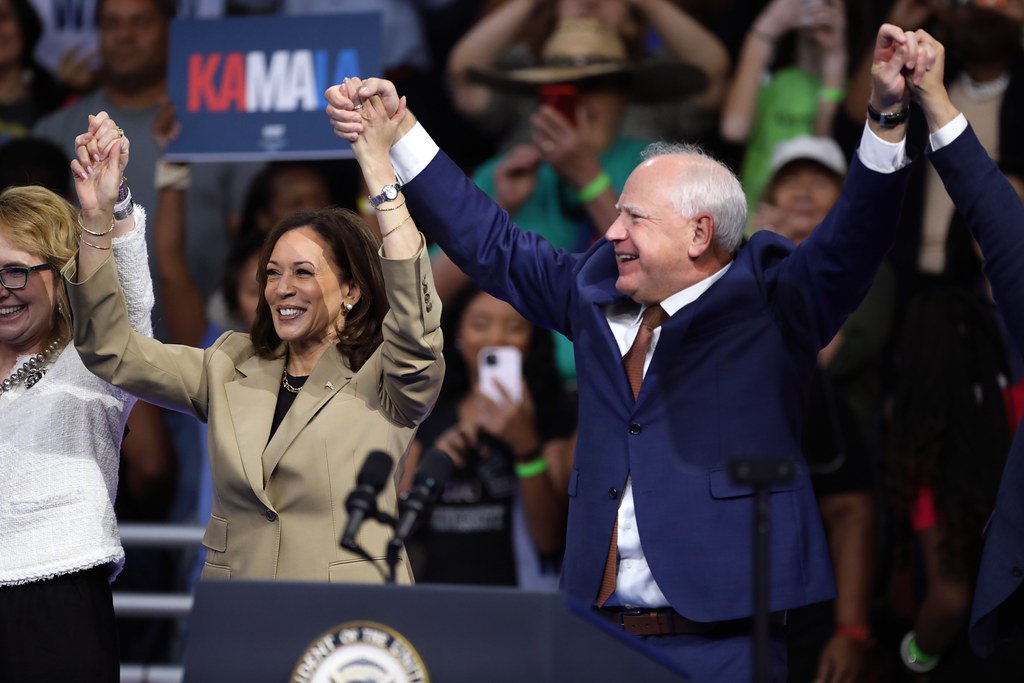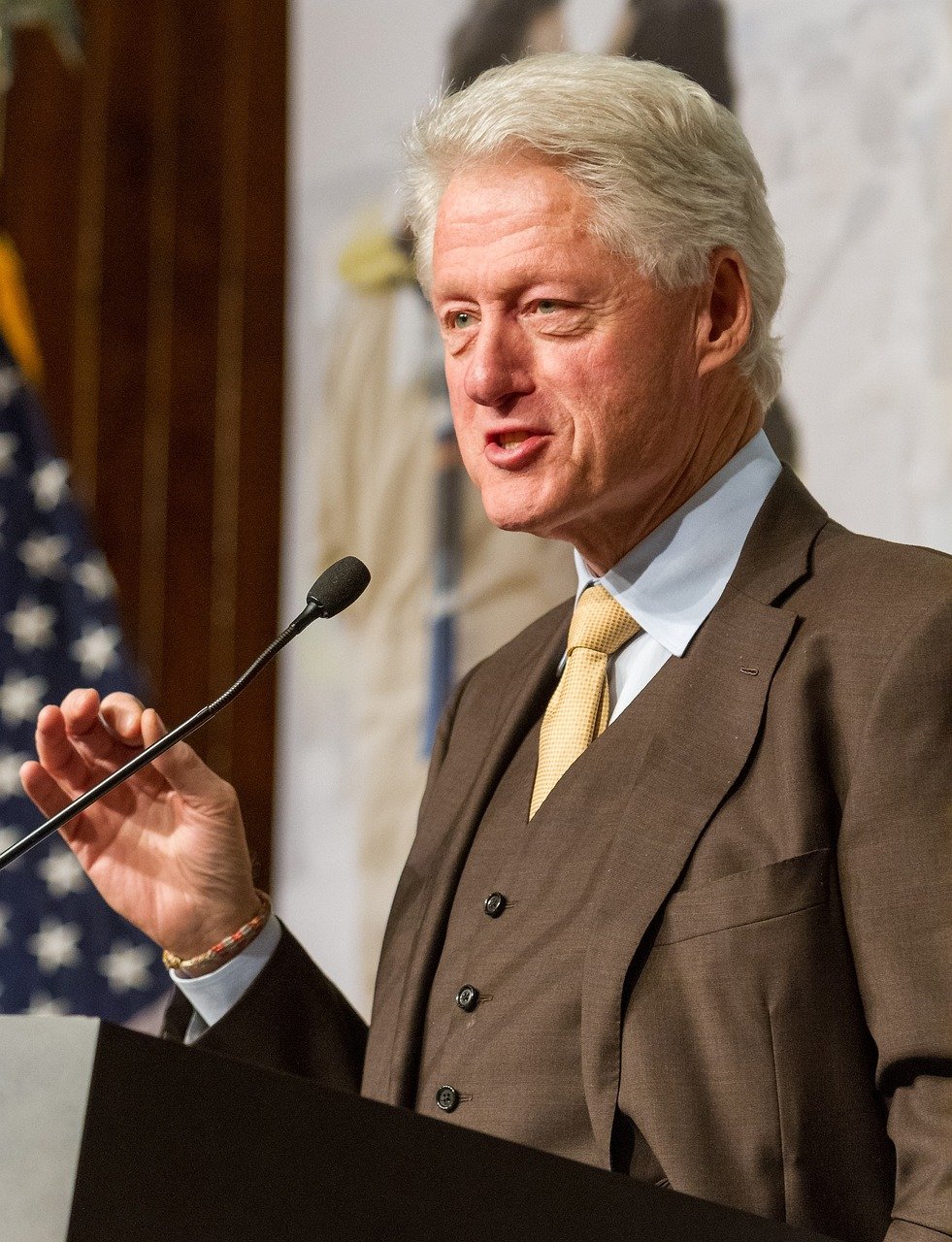Kamala Harris and Walz Unleash New Campaign Blitz Across Georgia
Vice President Kamala Harris and Minnesota Governor Tim Walz are expected to launch an aggressive campaign swing across southern Georgia next week, their first joint appearance there, and a major push out of the Democratic convention in Chicago. It is a move designed to build on that momentum and fuel their campaign into the final, critical months before the general election.
The bus tour will have Harris and Walz crisscrossing parts of southern Georgia, a corner of the state known for having one of the more interesting mixes of voters—large populations of Black voters, rural communities, and both suburban and urban residents. More to the point, this very concerted campaign effort in Georgia speaks to its importance in the bigger electoral strategy, with both major parties just now beginning to pick up their stakes in this state.
For the Democratic ticket, this Georgia trip will not be a bus tour alone. Along with their travels, Harris and Walz are set to tape their first joint interview. This appearance will give them a clear opportunity to communicate to voters a unified vision and key policy positions. This interview is likely to be a major media event, allowing both of them to recount their perspectives to the public on these crucial issues and reinforcing their campaign messages. The pair will also take part in multiple-state fundraisers, including New York, California, Florida, and Georgia. These are vital fundraising activities to help firm up the financial resources of the campaign as the election goes into its final stages.

Harris will fly solo to one of the highlights of her trip: a rally in Savannah, Georgia. It is Harris’s seventh visit to the state this year and her second since launching her presidential campaign. The city of Savannah, with its own unique political dynamics, will turn out to be a really important place for Harris to engage directly with the voters and rev up her base. The rally is expected to draw hundreds, further solidifying her presence in Georgia and underscoring her commitment to the state.
The Harris-Walz campaign has expended much of its energy on Southern Georgia as part of its larger strategy to engage a diverse coalition of voters. The region represented rural, suburban, and urban communities with a large population of black voters and working-class families. It is this demographic diversity in southern Georgia that has made it a major battleground area where targeted outreach could most certainly make a real difference, according to the campaign. If anything, the campaign press release mentioned that above all, Black voters play a defining role in determining electoral outcomes in Georgia.
Southern Georgia holds some of the largest black populations in the state, such as Dougherty County, which contains the second-largest proportion of Black residents in Georgia. Already, the Harris-Walz campaign has opened field offices in predominantly Black cities like Albany and Valdosta. These offices will serve as the nerve centers through which they will organize voters and coordinate all activities for the campaign. Since May, it has sponsored more than 500 events around the region, going out to the people at the local level, and listening to them.
The renewed focus on southern Georgia parallels an intensified campaigning for the Republican ticket statewide. Only recently, the would-be Vice Presidential nominee, Sen. JD Vance of Ohio, held a campaign event in Valdosta, while former President Donald Trump held a rally in Atlanta just earlier this month. The shifting demographics are not lost on Republicans, who are keen on building out their support for the growing numbers of Black and Latino voters. What has made the race competitive in Georgia is the fact that both parties have invested much in the state, thereby making the state a critical battlefield.
The Harris-Walz bus tour will be a series of trips in southern Georgia, patterned like what the campaign did in western Pennsylvania. In that tour, the campaign stopped by a local campaign field office, a firehouse, and a high school football practice to meet voters in their own settings. It was part of its strategy to go into communities to conduct a mix of formal and informal events for building rapport and directly addressing the concerns of voters.
The trip to Savannah was scrubbed because of Tropical Storm Debby, but the event has been rescheduled. In any event, southern Georgia remains a crucial part of this campaign. He will tour different localities, getting out among voters, attending community events, and continuing to work on his outreach.
Ranada Robinson, research director for the New Georgia Project Fund, emphasized reaching out to Black voters across both rural and urban areas. Black voters were critical to results in the 2020 election, she said, demanding turnout that would clinch success in Georgia. The work the campaign has done—indeed, is doing—to reach Black voters is certainly seeded from this understanding and outlines the importance held by the demographic in electoral strategy.
Earlier this month, Harris held a rally in Atlanta featuring Megan Thee Stallion that drew upwards of 10,000 people. It showed off the campaign’s ability to pack big crowds, energized supporters, and turn them out. Coming right after the rally, the campaign was mobilized across Georgia with nearly 400,000 volunteers, 174 staff, and 24 coordinated campaign offices statewide. It is further described as “the largest in-state operation of any Democratic presidential campaign cycle ever in Georgia,” which amplifies the amount of dedication this campaign has to securing a strong showing in the state.
The focus on Georgia comes as part of larger campaign strategies outlined by Harris campaign chair Jen O’Malley Dillon. She said Georgia was one of the top priorities because of shifting demographics and the need to grow support among young voters, Black voters, and Latino voters. The campaign approach underlines its realization of the political shifting ground and its commitment to playing out its advantages in the critical areas.
As Harris and Walz gear up to hit the road, they are also planning events that will coincide with Labor Day. This tour will then be followed by debate preparation for Harris, as she takes her place on stage in September against Donald Trump. For both sides, this debate will form some of the defining moments of the campaign, offering an opportunity for Harris to present her policies and fight Trump’s arguments.
An adviser to Trump responded to the question by saying that yes, Harris may get a “bump” out of the convention, but it could be more like a “sugar high”—that is, something which doesn’t really change the dynamics of the race. The incredulity of that view from inside the campaign spoke volumes regarding the post-convention momentum effect.
Next on the list for the Harris-Walz bus tour is southern Georgia in a most critical electoral phase. By focusing on this diverse and pivotal region, this campaign is trying to ride the wave from the Democratic convention into the final position in the last months before the election. Simultaneously, this tour and other planned events or outreach programs underscore how seriously the campaign takes engaging voters across these key battleground states with their issues in its efforts to secure victory during the general election.



